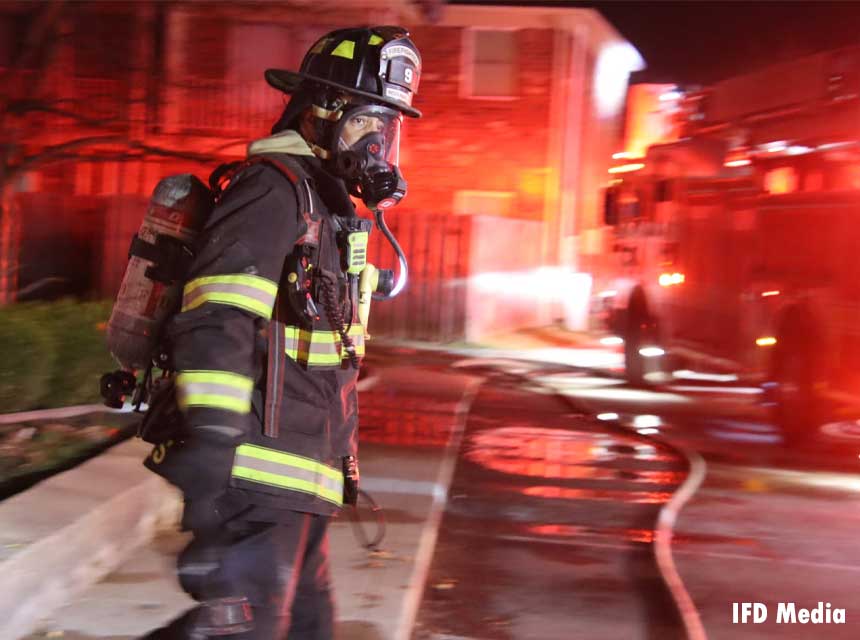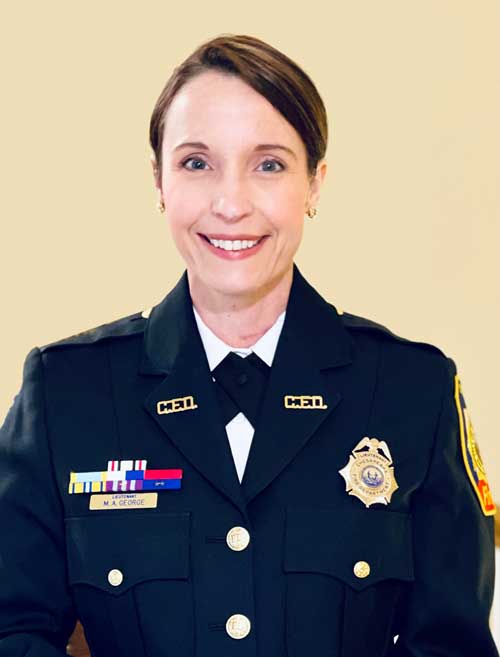
By Mandy George
Computer use in the fire service has increased exponentially over the years. Paper log books and handwritten reports have given way to an electronic way of doing business. We use laptops in the fire trucks to locate our incident scenes, communicate with dispatch, and access preplan information. We use tablets on EMS calls for electronic patient care reports (ePCRs), transfer reports to hospitals, and connect to medical equipment. In the stations, firefighters are on computers consistently throughout the day. We record training, record incidents, use e-mail, participate in online training, and collaborate virtually. The digital skills we have developed in the field can be very useful when we receive our assignment to assist with the grant writing application process.
RELATED
The grant writing application process is entirely paperless and requires a combination of digital skills to complete successfully. At a minimum, it requires the grant writer to input data into the application through the grantee organization’s interface. This isn’t fundamentally different from inputting patient information into an ePCR through a cloud-based system or structure fire details into records management software. However, grant applications often require a large quantity of numeric and written data covering many pages. The information may also need to be input over specific periods of time. This can make the whole project very overwhelming. The stakes feel higher and the process more difficult because departmental funds are in play. When looking at the elements required to create and submit the grant application, it is important to remember that you probably already have the digital skills to do it properly. Here are a few points to remember to make the process easier.
Don’t Rush It
We are well trained to expect immediate responses when we want to create an account on common Web sites. On the job, many of us are used to e-mailing or texting a colleague in the department when we are locked out of a program. The solution comes quickly. Expectations need to be reset when it comes to grant application accounts.
The timeline for creating an account to access a grant application can vary widely. Some grantor organizations like the National Institutes of Health (NIH) can take upwards of six weeks for initial account creation, so it is important to plan ahead. Once the application period is actively announced on Web sites and e-mails, it may be too late to get an application in for that year if an account is not already established. If the grantor organization is large, it is very likely someone in your organization has already created one. Do some digging and find out what the account information is. If one has not yet been created, go ahead and initiate the process. Even if it is too late to get the application in by the deadline, you can use the extra time to familiarize yourself with the grantor organization’s Web site and interface and get a jump on the application process for next year.
Once in the application, you will be inputting information directly into each individual page in the cloud-based program. Be sure you are using a browser that is compatible with the Web site. If the browser and the Web site are incompatible, data may be lost. The application may not be processed. Also, it is important to enable pop-ups and even cross-site tracking through the setting options in your browser. Without these options enabled, pages may not process, access may be denied, or detailed instructions could be missed.
Use the Tools in the Toolbox
Grant applications and management require meeting multiple submission deadlines with the correct information. There are several commonly used software programs that can help the grant writing team meet the deadlines.
- E-mail: We use e-mail daily and grantee organizations will receive many e-mails about the grant application and management process. Create folders in your e-mail inbox for specific grant programs and specific grant application years. It is also a good idea to create an e-mail group with all the members of the grant writing team so all are aware of deadlines, meetings, and updates.
- Collaborative software programs: The ability to collaborate on documents via a cloud-based word processing or spreadsheet software program such as Office Suite is helpful when a grant requires data from many sources. The ability to collaborate virtually is invaluable in the current COVID-19 environment when physically meeting may not be an option. If funds for software programs are limited, there are online sharing solutions such as Google docs and sheets that are free to use collaboratively.
- Database management programs: It is important to have permission and knowledge to access NFIRS-compliant database management systems used by your locality in order to find information for the grants.
- Multimedia applications: Data can come in all forms and grant writers often need to transfer data from one form to another. If the correct software packages are not available, cutting and pasting the information may not be an easy thing to do. Documents need to be converted to a different form. Web sites like smallpdf.com have a variety of tools for working with PDF documents. There is no cost for a limited number of document conversions. If conversions are needed regularly, upgrading to a paid version of Adobe Acrobat may be in the best interests of the grant writing team.
Practice Digital Skill Development
Some may read the tips above and think they are very elementary, some may take a few helpful details away, and some may want to know more about how to do the tasks listed above. How do I collaborate on a document virtually? How do I create e-mail groups? Many options exist to help the public safety grant writer develop digital skills.
- Check the Information Technology (IT) department in your city or municipality for online or in-person courses relating to Office Suite type programs
- Local libraries often offer computer literacy classes and courses in specific software programs and platforms that are commonly used in the community
- Local community colleges offer Intro to Computers courses that are a good introduction to how a computer functions and how to use basic programs
- Ask for help. Look around and ask what the person next to you knows about a program or process. There is a good chance they are working on improving their skills as well…whether by choice or necessity. Those close to you may help you find the best resources in your area.
Computer use in the fire service will only continue to increase. Improved digital skills and computer competency will benefit you and your grant writing team throughout the grant application process and in daily fire service operations. Give yourself plenty of time, use the tools in the toolbox, and secure the grant!
 Mandy George is a lieutenant in the Chesapeake (VA) Fire Department. She is a training officer who works with a strong team to facilitate the training needs of a 500-member department of sworn and civilian personnel. She has a master’s degree in emergency and disaster management, a master’s degree in professional writing, and an associate’s degree in emergency medical services. She is also a Nationally Registered Paramedic (NRP).
Mandy George is a lieutenant in the Chesapeake (VA) Fire Department. She is a training officer who works with a strong team to facilitate the training needs of a 500-member department of sworn and civilian personnel. She has a master’s degree in emergency and disaster management, a master’s degree in professional writing, and an associate’s degree in emergency medical services. She is also a Nationally Registered Paramedic (NRP).
MORE MANDY GEORGE
Get SANE and Stay SANE: Build a Strong Grant Writing Team
Fire Department Interviews and the Informational Vacuum
SIGN UP FOR EXCLUSIVE GRANTS INFORMATION

